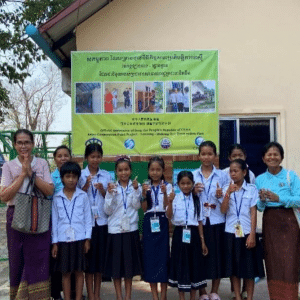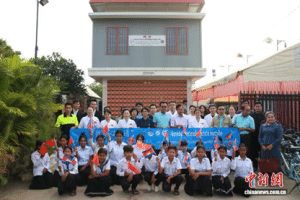“She has been a mother and a father at the same time, and her life has been too hard,” said Ma Xiaolan, the eldest daughter of Malabiye.
Malabiye, who never attended school, married Ma Xuewen, who suffered from pneumoconiosis, at the age of 18, and they raised four children together. In 2011, Ma’s conditioned deteriorated rapidly, and he passed away soon after. Since then, Malabiye has been raising her children alone and working to support her family.
Before her husband passed away, she once said, “I will take care of the children by myself. I’ll work part-time. I can support them and raise them well. If they do well in school, I will pay for them to go to college.” But after her husband’s death, she struggled to earn money to support her four children. She picks goji berries in the summer and bounces from one restaurant to another as a waitress in the winter.
Last year, Malabiye used her experience working in a chili factory to rent a storefront and open a handmade chili strip store with help from the Love Save Pneumoconiosis’s business support fund. It gave her a monthly income of about 3,000 yuan ($471).
Malabiye is just one of the millions of pneumoconiosis caregivers, but this story shows the importance of women in families hit by the disease; they are the backbone of the family when their husbands get sick. Therefore, it is critical to empower them with economic approaches.
Why do we need to help pneumoconiosis caregivers financially?
Because women in pneumoconiosis families are both breadwinners and caregivers, the conflicts between their two identities can impact the stability of the family. Ms. Xiao, president of Xingjian Charity, based in Pingxiang, Jiangxi Province, once explained: “We have visited many families with pneumoconiosis under the age of 50, and almost 90 percent of them are disintegrating and on the verge of splitting apart. There are a lot of poor pneumoconiosis families, and the wife is there to support the family. Their husbands in their 40s have pneumoconiosis and can’t work, so the women tend to work as restaurant dishwashers or babysitters in nearby towns or cities to earn money.”
Her remarks show that the role of pneumoconiosis caregivers is to support the whole family. Only when caregivers earn a stable income will the family face less financial hardship.
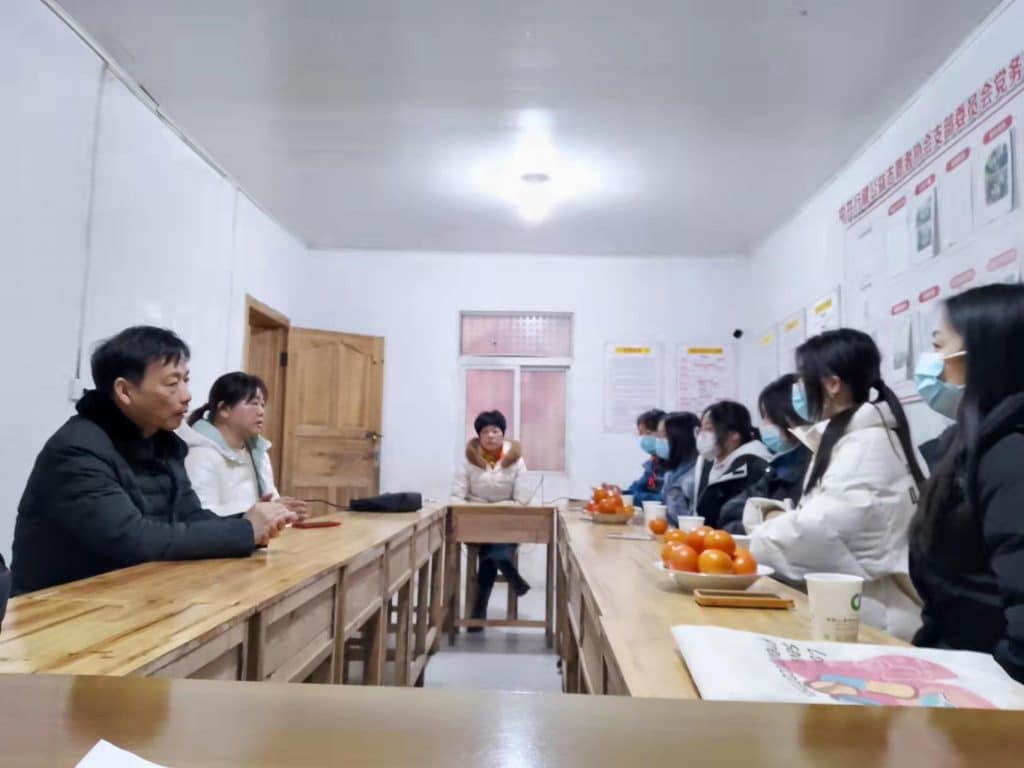
Ideally, a pneumoconiosis caregiver would be able to support her own family with her income — but it isn’t easy to realize in practice.
First of all, most of the families impacted are peasant families, so they are usually not well educated. Therefore, it is challenging for caregivers to find well-paying jobs. Second, pneumoconiosis caregivers need to care for their husbands while they work. For this reason, they are unlikely to leave their families for long periods for employment. Under these conditions, it is tough for caregivers to support their families alone. It is why Xingjian Charity decided to help mothers living in families hit by pneumoconiosis.
How to help the caregivers
Xingjian Charity has employed different approaches to help pneumoconiosis caregivers improve their family income.
In the first phase, the charity helps pneumoconiosis caregivers find opportunities to increase their income in places not far from home. A Pneumoconiosis Caregivers Support Group volunteer highlighted some of the small jobs that caregivers might take.
“We try to provide them with any possible job opportunities. For example, they can thread the laces into the small holes on shoes. They can earn several dozen yuan per day doing this,” she said.
Although such work does not allow them to earn a lot of money, it can help caregivers to increase their basic income.
“What we want to do is provide jobs or opportunities that are more accessible, such as producing handmade products to allow their families to have more money,” said the volunteer.
Xingjian Charity has also set up a mutual-support group to explore how pneumoconiosis caregivers can help each other. For example, some caregivers might share a full-time paid job between them – with the reduced hours still allowing them to earn a little money.
Recently, the charity has been exploring entrepreneurship programs. The well-known NGO Love Save Pneumoconiosis program has been run in recent years to give pneumoconiosis families the opportunity to apply for business start-up funds. And in Pingxiang, one family has been approved with the help of Xingjian Charity.
“This family is good at raising sheep, and the black sheep are very popular in the market. Mr. Xu’s wife, one of the pneumoconiosis caregivers, played a leading role in the family sheep farming; she had to do a lot of heavy work, such as cleaning sheep pens and delivering lamb. Her husband, Mr. Xu, was almost incapacitated after suffering from pneumoconiosis,” said Ms. Xiao.
But they are experiencing difficulties. The sheep pens need to be repaired and the cost of feed has increased. If they want to increase their income, they need to expand their business.
In October 2021, with the help of Ms. Xiao, they applied for a 12,000-yuan business start-up grant from the Love Save Pneumoconiosis Foundation. The family used the first 9,000 yuan to expand the sheep pen and develop new breeds. The good news is that the price of sheep has been rising, so they are expecting to earn more money in the future.
The work of Xingjian Charity reflects the trend away from group interventions to individual services.
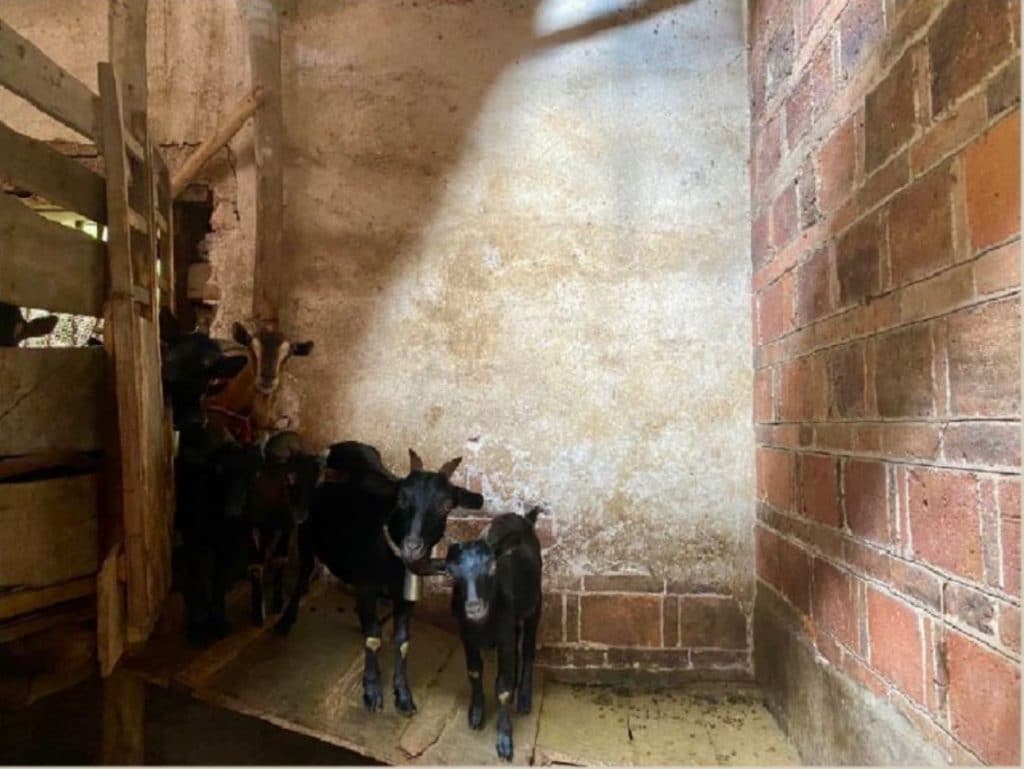
Gender dividend theory
Improving the income of pneumoconiosis caregivers is essential to enhancing the welfare of the whole family. The gender dividend theory can help explain why: when a husband loses his ability to work, the family’s financial burden falls on the shoulders of caregivers. Therefore, increasing the incomes of caregivers will directly improve the family’s income, alleviating poverty and improving family welfare.
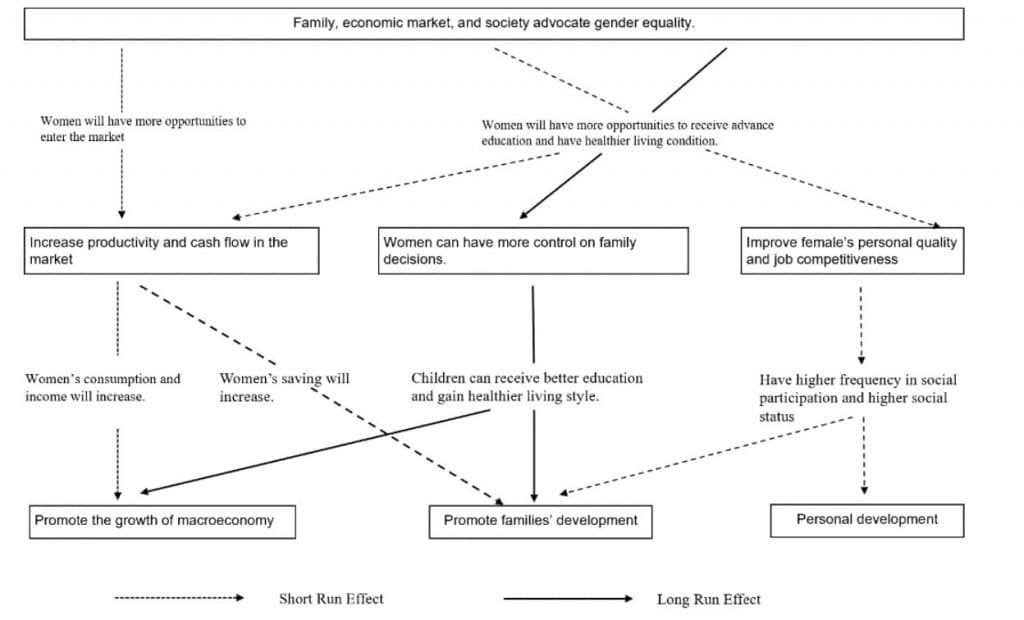
First, increasing income can alleviate the economic hardship faced by pneumoconiosis households. The study reveals that female off-farm employment significantly increases the net household income per capita of households that escape poverty. It provides the empirical evidence of the gender dividend: for each additional month of female nonfarm employment, household net income per capita increases significantly, by 1.17 percentage points. The non-labor burden on the household significantly depresses female nonfarm employment and reduces household income.
“Children from pneumoconiosis families should not enter society when they are underage. They need to receive a primary education. The poorer they are, the more they will be trapped in a cycle of poverty if they enter society too early,” said Ms. Xiao.
In an impoverished family, these robust and hard-working pneumoconiosis caregivers need more help from society and need someone to empower them.
References:
肖泽平 & 王志章.(2021).性别红利:脱贫户女性非农就业的家庭收入增长效应分析——基于2015-2020年2860个样本数据. 云南民族大学学报(哲学社会科学版)(06),56-65. doi:10.13727/j.cnki.53-1191/c.20211110.011.

